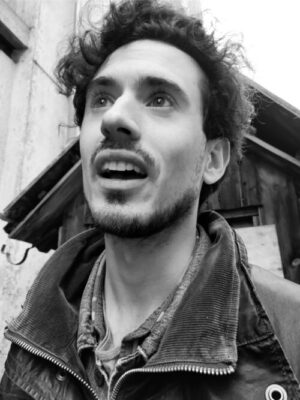
We asked CONSPIRACY_FX team member Daniel some questions about himself and his role in the project. Find out what he had to say below...
Q1. Where did you complete your studies prior to joining the CONSPIRACY_FX project?
A. I completed my undergraduate degree in Psychology in Madrid, before moving to Amsterdam to complete my Masters in Social Psychology. During my masters, I already started doing some research on conspiracy theories, through a group research project. My colleagues and I specifically looked at whether people in power (especially those high in narcissism) were more prone to hold conspiratorial beliefs. I then completed my PhD at the Max Planck Institute for Research on Collective Goods in Bonn, Germany. My research during my PhD was focused on the situational factors that influence people’s reactions to norm violations, specifically the role of situational ambiguity.
Q2. What is your job role within the project?
A. Within the CONSPIRACY_FX project, I work as a Post-Doctoral Research Associate, carrying out research on specific research projects for the next four and a half years. The goal of these projects is to find out when and how conspiracy theories, specifically those of a political nature, are influential to people’s social and political behaviour and what the consequences are for the people who spread them.
Q3. How long have you been working on the CONSPIRACY_FX project?
A. I started this role at the very beginning of the project, on January 1st 2022.
Q4. What does a typical day as a Post-Doctoral Research Associate consist of?
A. This is a very difficult question to answer, because it depends very much on what the specific project you are working on involves, and at what stage of the project you are at. Since we are in the early stages of the CONSPIRACY-FX project, my typical day involves a lot of reading to review the most recent literature on conspiracy theories, as well as meetings to discuss the conceptual framework of the project and the specific research questions we are looking to address. The early stages of a project require creativity and inspiration from real-life events and emerging conspiracy narratives, and I therefore also spend time looking at news articles and social media to see if they can inspire our research.
Q5. What do you enjoy most about your role?
A. I enjoy being able to provide answers to questions of societal relevance from aggregated data – I like looking at large samples of information and being able to tease out trends, and help understand the effects of conspiracy theories on peoples beliefs, attitudes and behaviour. I also like that we are able to update the existing knowledge of conspiracy theory research. From a different angle, I am also consider myself a conscientious advocate of open science and scientific replicability. I like to ensure scientific findings are replicable and reproducible. During my Masters PhD, I was a member and coordinator of the Open Science group of the Max Planck PhD network, a group of PhD candidates from different disciplines whose goal was to promote open science practices to improve the replicability and reproducibility of scientific research. So I also enjoy sharing my passion of this with others and furthering open science within the scientific community.
Q6. What research are you currently working on?
A. Currently, my research is in different directions. My main research project focuses on the consequences of political conspiracy theories. In this regard, we plan to examine the temporal dynamics of the spread of political conspiracy theories using data from Twitter. In addition, I am elaborating a conceptual framework to investigate the connection between the antecedents of conspiracy beliefs, the latter and collective action (this is, political protest behaviour). Throughout the project, we will also examine how the exposure to political conspiracy theories shapes people’s political attitudes and behaviour.
I am also contributing to other projects on conspiracy theories. One of them focuses on how conspiracy theories may impact interpersonal relationships. We recently found some preliminary evidence showing that for people who do not believe in conspiracy theories, their satisfaction in their relationship with individuals within their social network who believe in conspiracy theories is negatively affected. Furthermore, I collaborate in a project looking at the relationship between conspiracy theories and dishonesty, which goal is to examine whether conspiracy beliefs relate to the expectation of dishonest behaviour, and consequently, in the engagement in dishonest behaviour.
Q7. What do you enjoy doing outside of your work?
A. I enjoy being active, specifically bouldering and hiking. I also enjoy music and movies, gaming and keeping up-to-date with the latest gaming technology. I have recently adopted a kitten, so I like to spend a lot of time with her at the moment!